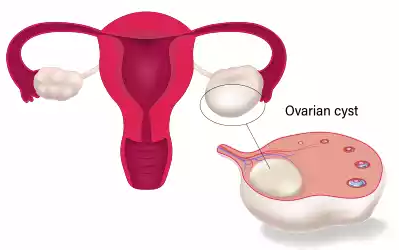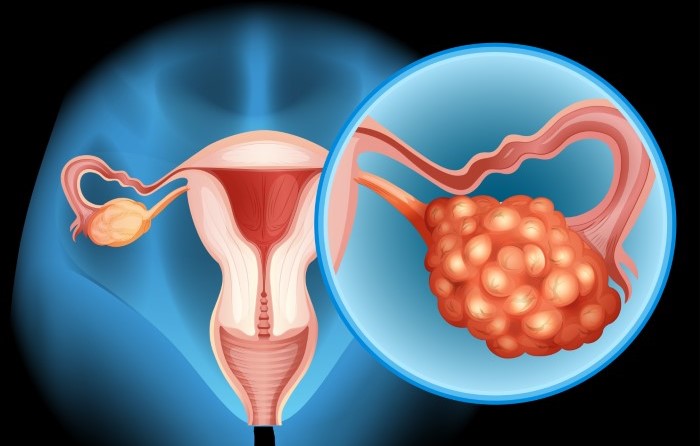Understanding Rectovaginal Fistula: Causes, Symptoms, and Treatment

A rectovaginal fistula refers to a defective union of the rectum and vagina. This condition enables the passage of stool or gas through the rectum into the vagina, which may be uncomfortable and socially embarrassing to women.
It is a severe health problem that needs to be addressed, but it is rather uncommon. In case of abnormal discharge or repeated infections or lack of bowel control it is important that you visit a trained physician such as Dr. Sandip at Pelvinic so that you can be correctly diagnosed and treated.
What is a Rectovaginal Fistula?
A fistula is an improper opening in between two organs or tissues not normally attached. With a rectovaginal fistula, a passageway forms between the rectum (digestive system) and vagina (reproductive system). This relation may result in the leakage of stool or gas into the vagina, which may cause pain, infections, and emotional stress.
Causes of Rectovaginal Fistula
Rectovaginal fistulas can develop due to various reasons. Some common causes include:
- Childbirth Complications: One of the most common causes is traumatic childbirth. Prolonged labor, large babies, or forceful delivery can damage the tissues between the rectum and vagina, leading to a fistula.
- Surgical Complications: Certain pelvic or bowel surgeries may sometimes result in fistula formation. Scar tissue or accidental injury during surgery can create this abnormal passage.
- Inflammatory Bowel Disease (IBD): Conditions like Crohn’s disease can weaken the walls of the intestines, causing abnormal connections like rectovaginal fistulas.
- Infection: Severe infections in the pelvic area, including abscesses, may damage tissues and result in fistulas.
- Radiation Therapy: Women who have undergone radiation therapy for pelvic cancers may rarely develop fistulas due to tissue damage.
Symptoms of Rectovaginal Fistula
The symptoms of a rectovaginal fistula may vary depending on the size and location of the fistula. Common signs include:
- Uncontrolled Passage of Stool or Gas: Women may notice stool or gas coming out of the vagina, which is often the first and most noticeable symptom.
- Recurrent Vaginal Infections: Because stool can enter the vagina, infections are frequent, causing discomfort and foul-smelling discharge.
- Pain or Discomfort: Pain in the pelvic area or during sexual intercourse is common.
- Irritation or Itching: Continuous leakage can irritate the vaginal skin and surrounding areas.
- Emotional Stress: Women often experience embarrassment, anxiety, and a decreased quality of life.
Living with Rectovaginal Fistula
The process of rectovaginal fistula may be an emotionally and physically difficult task to deal with. The symptoms can be embarrassing, anxious, or depressing to women. Healthcare professionals, family and support groups can help make a difference.
Pelvinic, under the care of Dr Sandip, offers quality care that takes into consideration medical and emotional needs. The clinic uses a focus on providing a secure atmosphere where women can have an open discussion of their issues.
Diagnosis of Rectovaginal Fistula
The medical history and a meticulous examination are the keys to diagnosing a rectovaginal fistula. The following are some of the common diagnostic tools:
Physical Examination
When the doctor is conducting a physical examination, he/she takes time to examine the pelvic area in order to identify the fistula. They evaluate its size, location, and presence or absence of infection or inflammation. This primary assessment assists in conducting further diagnostic procedures and treatment strategising.
Imaging Tests
The imaging tests, like MRI, CT scan or fistulography, give a detailed view of the pelvic region. Their assistance with the location, size, and relation of the fistula between the rectum and vagina aids in planning accurate and effective treatment by the doctor.
Endoscopic Examination
Endoscopic operations such as colonoscopy or sigmoidoscopy enable the physician to observe the interior of the rectum. The tests can be used to identify the fistula, inflammation, and underlying causes such as Crohn’s disease that might have led to the formation of the fistula.
Laboratory Tests
Infections, inflammation, or other factors that might lead to the development of a fistula can be detected by means of laboratory tests. Blood and stool samples give data on the general health of the patient, enabling the doctor to select the best mode of treatment.
Prevention and Awareness
While some causes of rectovaginal fistula, like childbirth complications or certain diseases, cannot be completely avoided, awareness and timely medical attention can help reduce the risk:
- Proper Obstetric Care: Regular check-ups during pregnancy and safe delivery practices can minimise childbirth-related injuries.
- Prompt Treatment of Infections: Treating infections quickly can prevent tissue damage and fistula formation.
- Managing Chronic Diseases: Controlling conditions like Crohn’s disease reduces the likelihood of developing fistulas.
- Regular Medical Check-ups: Routine pelvic and gastrointestinal examinations can help detect potential issues early.
Treatment Options
The treatment of a rectovaginal fistula depends on its cause, size, and location. While small fistulas may heal on their own, most cases require medical or surgical intervention.
- Conservative Management
For small or uncomplicated rectovaginal fistulas, conservative treatment may be recommended before surgery. This approach focuses on improving hygiene, preventing infections, and managing underlying health conditions.
Antibiotics may be prescribed to reduce bacterial growth, while medications are used to control inflammatory bowel disease like Crohn’s, which often contributes to fistula formation.
Dietary adjustments, stool softeners, and sitz baths can also help reduce discomfort. Although conservative management cannot always close the fistula, it plays a key role in improving the quality of life and preparing patients for surgery if needed.
- Surgical Repair
Surgery remains the most effective treatment for rectovaginal fistulas, especially when conservative methods fail. The surgical approach depends on the fistula’s location, size, and severity.
In fistulotomy, the fistula tract is opened and cleaned so it can heal naturally. Flap surgery uses nearby tissue to close the fistula securely, reducing recurrence risk. In more severe cases, a temporary colostomy diverts stool, allowing the fistula to heal without pressure.
At Pelvinic, Dr. Sandip is highly skilled in performing these procedures, ensuring successful outcomes with minimal complications and faster recovery for patients.
Why Choose Dr Sandip at Pelvinic?
Choosing the right doctor and clinic is crucial for effective treatment of rectovaginal fistulas. Dr Sandip at Pelvinic is known for:
- Expertise in pelvic and colorectal surgery.
- Personalised treatment plans based on thorough evaluation.
- Advanced surgical techniques with minimal recovery time.
- Compassionate care that prioritises both physical and emotional well-being.
Patients at Pelvinic receive comprehensive care, from diagnosis to post-surgery follow-ups, ensuring better outcomes and improved quality of life.
Conclusion
A rectovaginal fistula is a severe disorder that might negatively impact the physical and emotional state. The symptoms should be identified early, and diagnosis and treatment should be utilised promptly to recover. The cause may be childbirth complications, infection, or chronic diseases, but they can be treated with the help of a professional.
Dr Sandip of Pelvinic provides care and treatment of rectovaginal fistulas with professionalism and compassion. Do not wait, just in case you experience any symptoms or your acquaintances do. Problems may be avoided through early consultation and might be used in normalising life.
Get in touch with Contact Pelvinic and book an appointment with Dr Sandip and take the first step to recovery.



